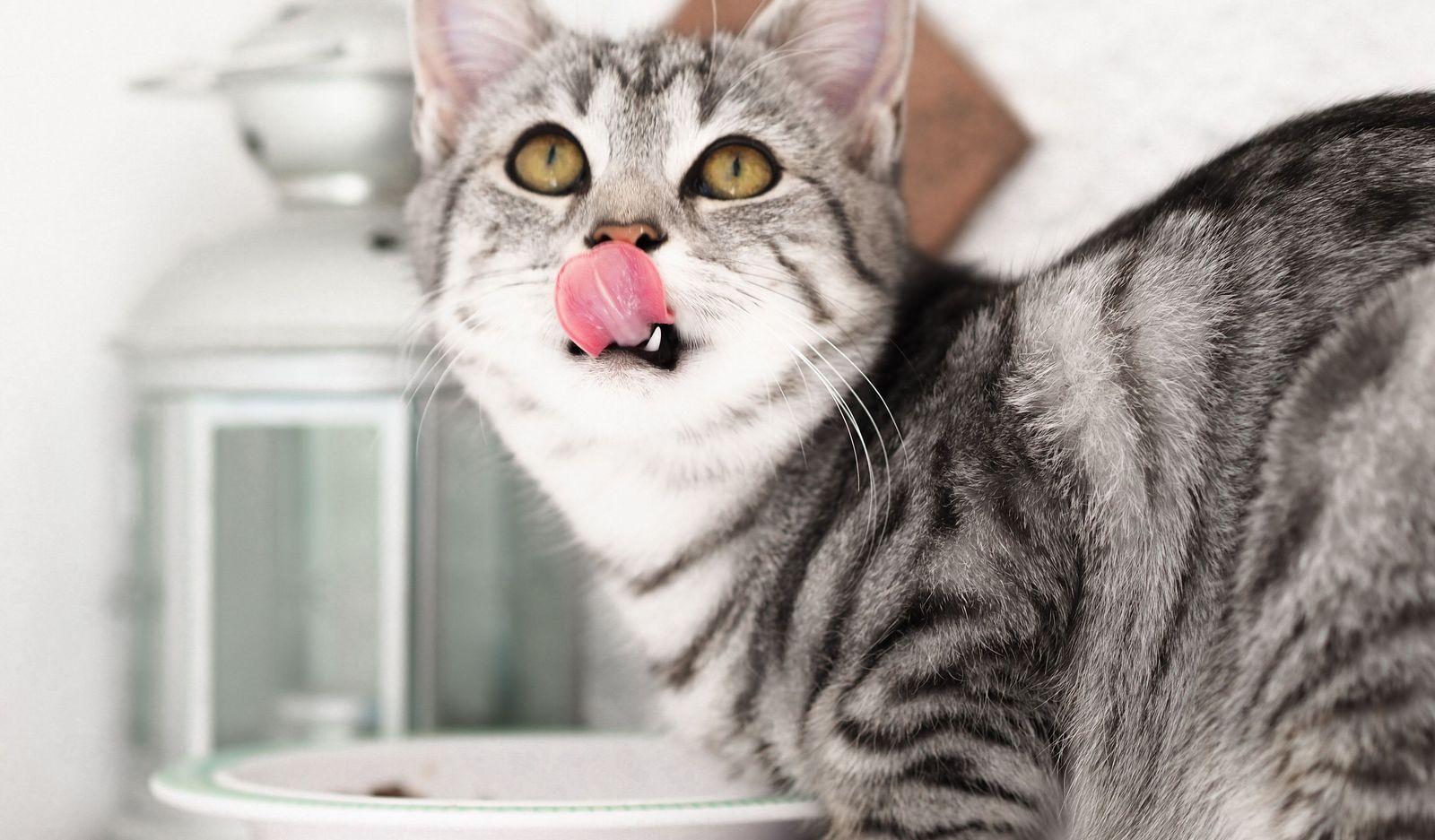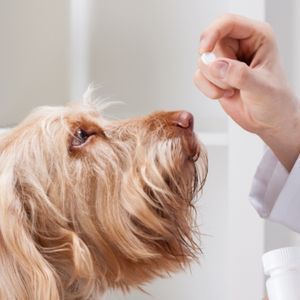Can you feed your cat dog food?

There’s a pet food shortage across North America right now, so many people are asking: “Can I give my cat dog food?”
Cats are not like humans or dogs. They are exclusive carnivores and are adapted to eat a diet high in protein. Their overall health can be significantly improved if this high protein diet is in the form of canned food to help maintain good hydration. Not all dog foods fit this criteria, so it’s not as simple as substituting one pet food for another.
Cats are Carnivores
Unlike dogs and humans, which are omnivores and need nutrition from both plants and meat, cats are carnivores and primarily get all of their nutrients from animal products. Scientific studies have shown that when cats in the wild live on prey (i.e., animals, such as mice, that they hunt and kill), their diet is primarily protein (55%), some fat (45%), and only 1-2% carbohydrates.
The reason for this is that the methods by which cats’ bodies break down and metabolize foods are not suited for digesting starches and sugars. So, if they eat a diet high in carbohydrates, they can’t break down and absorb those nutrients nearly as well as a diet higher in animal protein. But many dog foods contain higher carbohydrate levels that can make cats ill.
Additional Nutritional Needs of a Cat
In addition to cats’ protein requirements, they are also deficient and/or can’t make certain amino acids and nutrients necessary for their survival. Thus, it is necessary for cats to get them from cat food.
These include the amino acids arginine, taurine, methionine, and cysteine, as well as vitamins such as vitamin B (niacin) and vitamin D. When researching commercial cat foods, it is important to ensure these are part of the ingredients.
Many of these important amino acids and nutrients are primarily obtained from animal products (e.g., liver, protein, fat) which further highlights the importance of a diet high in animal protein. If these are supplemented from plant sources, your cat might not be able to absorb the nutrients.
Canned Food vs Dry Kibble
Overwhelmingly, research points to a recommendation of canned commercial diets (wet food), high in protein and low in carbohydrates, as the best type of diet for cats. Veterinarians have also frequently noted that common issues in feline medicine such as urinary tract disease and chronic gastrointestinal (GI) issues are much more frequently seen in cats on dry diets. But dogs are almost universally fed dry kibbles.
Another benefit of canned food over dry food is that the water content helps maintain the sensation of feeling full, so your cat won’t consume too many calories. Many vets will switch an overweight cat eating dry food to canned food as the first step toward weight loss. It also helps keep your cat hydrated, which is important since most cats don’t love drinking water.
Bottom line: feed canned high protein, low carbohydrate diets designed for their needs. And avoid milk (most cats are lactose intolerant) or simple, homemade proteins (which can lack the essential nutrients cats need).




